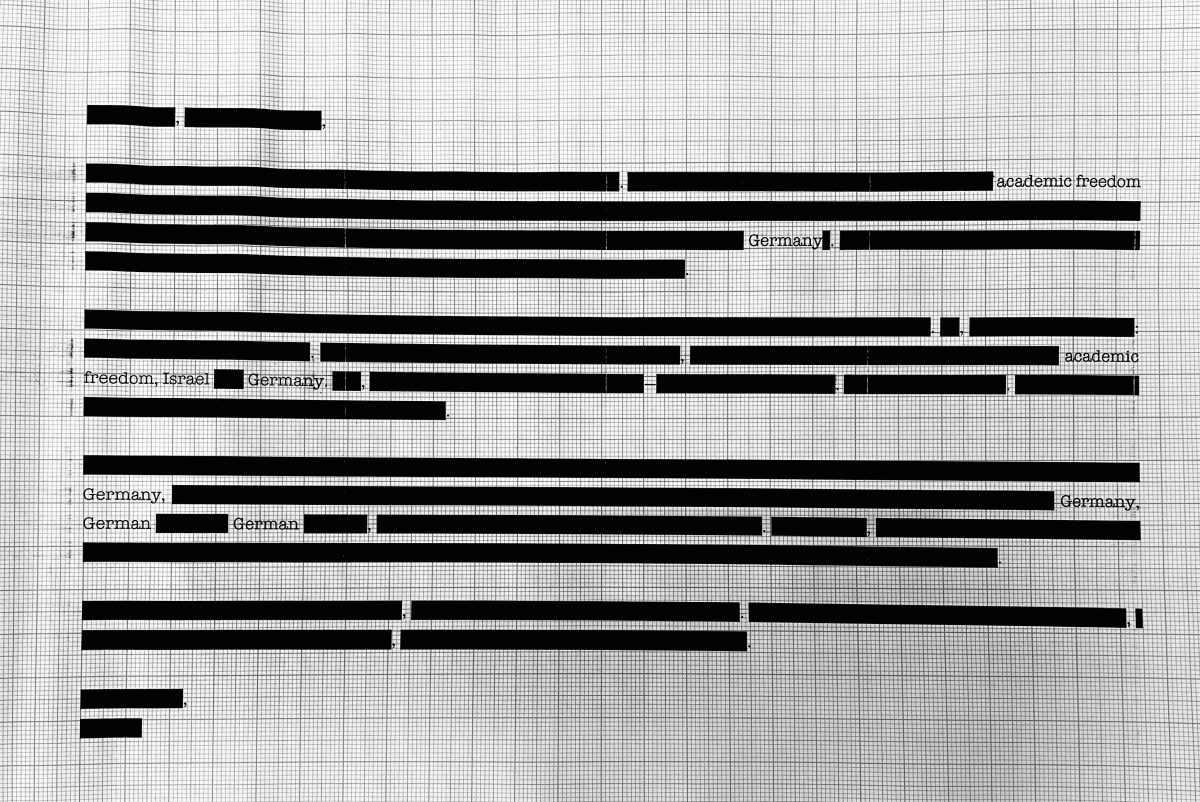Dear Anna, Khaled and Sissy,
thank you so much for your invitation (& for reading the CLT piece). I have a complicated relationship to the idea of academic freedom (on the one hand I think it risks fetishising universities as sites of debate and organising, and on the other hand I think that the Symposium is an important intervention considering what has been happening in Germany). And so I would like to contribute, but only if what I am about to suggest makes sense for the vision you guys have.
I was intrigued by your indication that there might be some ‘wiggle room regarding media the blog offers’. So, my idea is as follows: it’s a two-part intervention. The first part is the publication of this e-mail, but completely redacted except for the words academic freedom, Israel and Germany. But, it’s published as if nothing is wrong—like an actual blog post. With no explanation. Then at the end of the symposium, you publish the full e-mail.
The hope is that this will spark a conversation about what kinds of allegiance one can profess in public (and academic) spaces in Germany, and also about the fact that much of the crack-down on free speech and academic freedom is actually about Germany, German guilt and German identity, and not about safeguarding against antisemitism. Beyond this, I hope that this intervention can create an opening for thinking through the possibilities of resisting the limits imposed by the state in creative ways.
I realise that this is a little bit out there, and might not be what you have imagined. But in case it sounds like it might be of interest, I am attaching a pdf of a redacted letter, to give you a sense of what it would look like.
In solidarity,
Marina

Marina Veličković is a Leverhulme Early Career Fellow at the University of Warwick. Her research explores the post-socialist transition in Bosnia and Herzegovina. She is particularly interested in the role of legal discourse in legitimating and (re)producing structures of violence and disenfranchisement.
